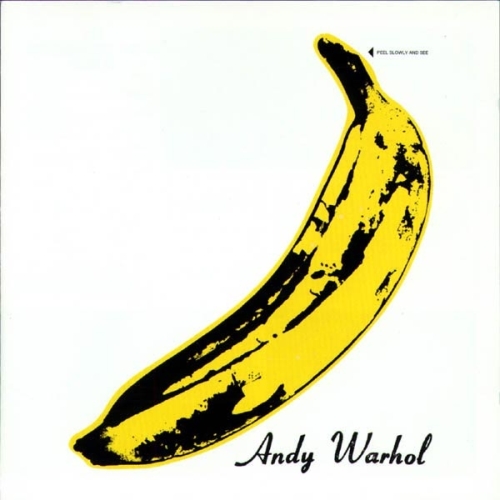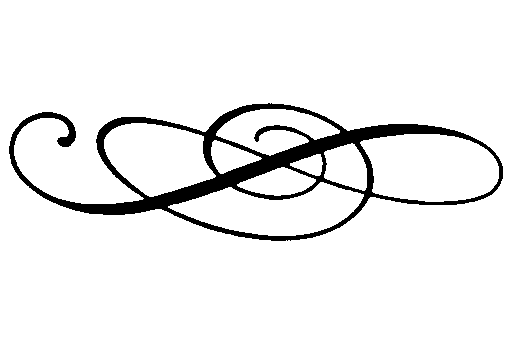

 The Velvet Underground
The Velvet Underground | Release date | Label | Producer | Genre | Length | More info |
| 1967.03.12 | Verve | Andy Warhol/Tom Wilson | Avantgarde Rock | 48:51 |  
 |
You know you're in Perseian trouble when Nico wants to be your mirror.
Background
In 1966-67, most of the advertised progress in rock'n'roll music, the way it was evolving into a "respectable" art form, generally took place somewhere in between ʽGood Vibrationsʼ and ʽAll You Need Is Loveʼ - in other words, seriousness in this line of work was largely associated with canonical beauty, for a multitude of reasons: music as a unifying force for people, music as a search for The Lost Chord, and, not least of all, music as a viable commercial force. (Who'd want to send "ugly" music to the top of the charts, anyway?). Even rough-cut garage bands still celebrated generic beauty in their own rough-cut ways: The Troggs may have behaved and recorded like cavemen, but even cavemen have their own beauty standards. And even Hendrix, with his love for sounds that must have scared the crap out of the Sinatra generation, would still be taking you away to nice heavenly places like Electric Ladyland.
Of all people, two bands broke that unmitigated rule of beauty in 1967, both of them American, but having very little in common: The Doors and The Velvet Underground. The former represented a commercial compromise - they knew the secret of packaging darkness and ugliness into shapes of beauty, and went on to have a mega-successful career before eventually exploding (from an imbalanced overdose of ugliness, one could say). The Velvet Underground, however, were less obliging, and their version of darkness and ugliness, unlike that of The Doors, was far scarier because it was much more realistic. Only select groups of intellectually and emotionally strong listeners could handle what they were offered in 1966, when the band, managed by Andy Warhol, became a regular fixture of his Exploding Plastic Inevitable events. To this day, I still cannot quite understand how Warhol and The Velvets really fit together from an artistic perspective, but in any case, their year-and-a-half of collaboration pretty much determined the image and the mission of the band - they would become apostles of the avantgarde in the rock'n'roll music camp, or maybe vice versa, promoters of rock'n'roll music in a small society of freaked-out avantgardists. And I suppose that without Warhol's support, they would never have gotten a recording deal, either.
The very concept of "musical underground" as applied to the rock scene was pretty much invented by these guys - invented quite accidentally, as it usually happens with all great inventions, simply because Warhol monopolized them for his events, and they never ever became a part in any musical scene or subculture of the times. You could theoretically imagine seeing The Doors at Monterey or Woodstock (well, they did at least play The Isle Of Wight, if that counts), but certainly not the Velvets. And yet, at the same time, one must not make an oft-committed mistake that extols the band's spirit of experimentalism and avantgardism as their most significant contribution to the musical world, and the one reason for which these guys command our respect. From the beginning and to the very end, Lou Reed was primarily a songwriter, as in "writer of songs", and the biggest contribution of The Velvet Underground to the world of music was not in their being able to play guitars and violins as if they were sitars and sarods, and certainly not in their proto-indie embracing of lo-fi and DIY values, but in their being able to merge the pop song form with as many influences as they could handle, a procedure in which they crossed far more borders than The Beatles, even if, perhaps, some of these crossings made much less sense than The Beatles.
Some basic factsIt is a well-known fact that the record sold very poorly upon release, and did not really gain much critical popularity until about a decade later, when its influence on the post-1976 musical scene on both sides of the Atlantic became undeniable. Poor sales could at least partially be explained by bad marketing strategies (including a period when for several months the record was commercially unavailable because of a stupid lawsuit), but on the whole, of course, it is clear that the record was totally out of vogue in 1967, even despite a few potential hit singles like ʽSunday Morningʼ, and not even because of its general downer vibe, but mostly because of the overall sound: the band seemed to care so little about production values or playing techniques that they came across like "amateurs" at a time when pop music was seriously struggling for legitimization in the eyes of stern musicologists and demanding music critics. Despite that, it is hard not to agree with Eno's famous assessment about how "only 30,000 people may have bought the record, but each one of them started his own band": the influence of The Velvet Underground & Nico is written on the face of just about any guitar-based rock band started in the wake of the New Wave revolution, and even more so on the face of any guitar-based indie/underground band from the last three decades.
As in all such cases, The Velvet Underground & Nico would be re-released in a gazillion different versions, the most sprawling of which up to date has been the 45th Anniversary Super Deluxe Edition, a great treat for the fans but an unnecessary mega-expense for the layman: two discs with both mono and stereo mixes of the album, Nico's excellent (but totally different) Chelsea Girl album as a bonus, the original Scepter Studios acetate recording as disc 4, and a complete recording of a live 1966 show as disc 5 and 6. The live CDs could be a real treat - vintage early VU are not easy to come by, and they have Nico with them, too - but, unfortunately, the sound quality is horrendous (it was probably captured from a tape recorder in the audience), and considering that there are two half-hour-long droning jams on there, listening becomes a real torture. Ultimately, despite the tons of demos, outtakes, alternate mixes, etc., available from 1966, nothing in that bag is of any particular importance to our understanding and prolonged enjoyment of the album.
For the
defense
Still, very very soon - almost immediately, in fact - you begin to realize that there's more to ʽSunday Morningʼ than just a general atmosphere of softness and loveliness. First and foremost, from a technical viewpoint it is one of the most awfully produced "lush ballads" in existence. The celesta is unusually, almost annoyingly (or hilariously) high in the mix, almost blocking everything else out of our hearing range when any high note is struck. Cale's viola is overdubbed in the place where you'd normally expect regular orchestration. The guitar solo sounds like it belongs somewhere in 1964, rather than in the era of Revolver, Cream, and Jeff Beck. And although Lou Reed manages to hit all the right notes in the end in a rare attempt to sing a melody rather than talk through it, which is what he normally does, every second of the way he seems to be walking across a tightrope without a safety net. Then there's the lyrics issue - no matter how much the irritatingly gorgeous celesta and the gentle mantra "sunday morning, sunday morning" strike out their sparks of fresh, innocent beauty, the song is ultimately about depression and paranoia: "Sunday morning, and I'm falling...", and that "watch out, the world's behind you, there's always someone around you who will call" may intonationally sound like a consolation, but is really a scared warning.
And that is no less Velvet Underground for you than the scraping aggressive drone of ʽEuropean Sonʼ - it's all about the ability to take an established form, scruff it up, transfer it from a silk surface to sandpaper, and make it walk a desperate line between beauty and cynicism. Every single song on this album seems like it may fall apart at any given moment, be it a lovely ballad or an abrasive jam; the thing that keeps them together for as long as necessary is not the band's technical skill (in which they are intentionally lacking), but their sense of purpose and level of devotion to what they are doing. It is not that hard to learn to appreciate the melodic skills of Lou Reed on songs like ʽSunday Morningʼ, ʽAll Tomorrow's Partiesʼ, or ʽI'll Be Your Mirrorʼ; it is much harder to appreciate the greatness of the record as a whole, including all the vamps, trills, and drones. But it is possible, and the key is understanding just how much "the Spirit is upon them" as they invoke the essence of Ravi Shankar, Ornette Coleman, and La Monte Young at the exact same time.
For that reason, let me first say a few words about the tracks that took the longest time to work their charm on me - ʽHeroinʼ, ʽThe Black Angel's Death Songʼ, ʽEuropean Sonʼ, all that screechy, scrapy, droning stuff on the album's second side. Considering that out of these, ʽHeroinʼ is an actual song with strong elements of musical development and a lyrical theme to it, there are people out there who love ʽHeroinʼ, but detest ʽEuropean Sonʼ; I took to both at about the same time, simply because the energy, enthusiasm, and total immersion in their own music are quite comparable. Even if ʽEuropean Sonʼ is essentially just a seven-minute drone where two guitarists (Reed and Morrison) and one bass player (Cale) seem to be competing with each other in how many times they can strum the same note per second, they are so caught up in the competition that listening to the track can be compared to the experience of watching three champion racehorses rippin' it up on three parallel racetracks - one of the racers or another sometimes slowing down to catch a breath, sometimes making a pit stop, and then, towards the end, accelerating in the maddest dash of 'em all. People usually take ʽSister Rayʼ from the next album as the VU's quintessential drone-jam song, but I will take the shorter, more economical, and, technically, more original ʽEuropean Sonʼ over it any day - with ʽSister Rayʼ, you already witness a conscious task of "topping ourselves", and the idea of making it run for a nearly endless amount of time as a value in itself is already disheartening. ʽEuropean Sonʼ is just all right in that department.
ʽHeroinʼ is, of course, easier to get from the get-go because of the title - I mean, back then in 1967, when really innocent song titles like ʽLucy In The Sky With Diamondsʼ could cause ripples, the idea of not just mentioning the word "heroin" explicitly in a pop song, but even using it as the song's title, was nuts, and the "nutty" effect of the song clearly persists even today. And here, all that droning, and Cale's increasingly distorted and maddening viola sound, and Maureen's frustrated, "lost" percussion pounding (which even stops at one point because she couldn't hear anything properly!), it's all easily interpretable in terms of a bad (or not so bad) heroin trip. But it wouldn't be significantly different if Lou preferred to chant "Mother Goose" instead of "Heroin": the main point of the song is to explore the idea of a crescendo while staying firmly located in drone territory, and by injecting a little punk energy in this, they manage to create an avantgarde masterpiece the likes of which no Californian psychedelic band would have thought of - next to this, Grateful Dead's Anthem Of The Sun, for instance, sounds like undisturbed, blissful meditation. But even so, the droning and the crescendo are not exactly "ugly" or "nightmarish" in texture: on the contrary, the basic idea here is to somehow find and create some beauty from chaos, or at least subvert the very concept of "beauty" to some adjacent purpose. Indeed, they are trying to do here for pop music much the same thing as the masters of atonality and dodecaphonics were trying to do for classical music, even if (as befits a pop artist) they do it on a far less advanced and informed technical level.
In turn, warming up to the band's alleged "ugliness" (which is really beauty in ostrich guitar disguise) helps find a new and even more loyal appreciation for their more conventional songs. First, the drone-based ones like ʽI'm Waiting For The Manʼ - a blues-rock number turned into vicious minimalism by emphasizing its pounding two-chord rhythmic basis over the lead melody (yes, there is a lead melody! Lou Reed is actually playing a Brian Jones-style blues lead line, which is much less repetitive than the Cale/Morrison rhythm section - but who ever remembers that, when the chug-chug-chug-chug pattern is so eating away all our attention?). The vocal melody is catchy because it is in a quite conventional blues pattern, but it is not until you learn to appreciate the band's general tenaciousness and verve that the chug-chug-chug-chug pattern begins working true magic. You can decide that it symbolizes the nervousness of the protagonist, waiting to purchase 26$ worth of heroin from a pusher in Harlem, or that it is just a general soundtrack to the hustle-bustle of a seedy area in New York City, but the important thing is - they're banging on these two chords, and they know they're making a big statement with this, and this makes them bang even harder. Remember how at 4:07 into the song Cale starts really punching those ivories with the energy of a stout little three-year old kid who has just discovered the wonder of sonic response to his fingers? That's, like, the ultimate moment of triumph. The Beatles, they can't allow themselves to do this thing, George Martin would probably decapitate them one by one. We, we are so much cooler here.
And we have not even touched upon the "decadent" aspect of the album yet, which manifests itself brightest of all in two of the best songs - ʽVenus In Fursʼ and ʽAll Tomorrow's Partiesʼ. The former takes place at a BDSM location and the latter at Andy Warhol's Factory, but really, the roles could be reversed: it's all about strangeness, perversion, and psychedelic bliss that comes from the darkest corners of man's soul rather than the brightest ones. It's all about dragging - the one thing you remember about ʽVenus In Fursʼ is Cale's viola, squeaking at regular intervals like a well-timed dominatrix whip, and the one thing you probably remember about ʽPartiesʼ is Cale's prepared piano, playing the same line over and over like a bizarre alarm siren; the one element that ties both together is, however, Lou's "ostrich guitar", with all the strings tuned to D, creating an atmosphere of total immobility, as if you were not listening to a song, but watching a frozen musical painting. It's all there - the bizarreness of the experience, the sense of danger, the sense of pleasure derived from danger, the feeling of inescapability as people are doomed to follow their Freudian instincts, and you can find all sorts of emotions here, but never a shred of pronounced judgements. Do they even like drugs? Or masochism? Or Andy Warhol? No, really, you shouldn't ask ridiculous questions like that. What they don't like is sending out direct, unambiguous messages.
Which is why - and here we come to the last great asset of the record - Nico is such a perfect counterpart for them here, on any of the songs she sings. One might say anything one likes about Warhol, but he did understand the essence of what the Velvets were all about, and his insistence that Nico join them for the sessions was a perfectly realised artistic instinct. Her voice is too stiff and expressionless and irritatingly German, some people say, but this is exactly the same as Lou Reed's ostrich guitar or Cale's droning viola. On the other hand, her voice is also colored with "frozen beauty", owing much to generations of stern, low-voiced German cabaret singers a la Marlene Dietrich, but taking it to further heights of ice-queenism - and this is what gives songs like ʽFemme Fataleʼ and ʽI'll Be Your Mirrorʼ their special appeal. Nico does not actually play the role of a real woman in either of these songs - she is your inner voice, giving you a warning about some outside "femme fatale" in the first song, and then, of course, she is your reflection in the second song. This complete de-personalization makes it feel as if she is indeed singing from within you than from without you, and that might be one good source of possible irritation - people may be subconsciously frightened by her almost demonic presence in these tunes. That "please put down your hands, 'cause I see you" bit in ʽMirrorʼ can be downright frightening, when you come to think about it. But that's the whole point.
For the prosecution
Another minor jab is at the production - lo-fi and scrappy and all by definition, but sometimes it hurts on a direct perceptive level. Ever tried listening to ʽFemme Fataleʼ in headphones? What the heck are those effects on the bass frequencies? I'm sure Kevin Shields of My Bloody Valentine would have loved that effect, but I can hardly stand when that resonance is swimming in my brains, and am still patiently waiting for the day when they decide to do some proper remixing. I also believe that the integration of the annoying viola and guitar on ʽThe Black Angel's Death Songʼ could have been handled better - no idea how, but the word "caterwauling" pops up into my head way too frequently whenever the song is on, and it is too simple and stupid a word to deserve being applied to any of the songs on this great record. Note, however, that these complaints only apply to specific moments, but not to the album in general: any serious polish jobs on the production would have derailed and confused its artistic purposes.
Conclusion
But that don't make it any less of our responsibility to learn it in at least some of the right ways, for some of the right reasons. And the main reason is - they were creating something here, a fascinating synthesis of influences that opened up an alternate pathway for pop music, one that was not being offered at the time by any of the major idols, but led someplace equally exciting and terrifying. And not only that, but they did it with gusto, pouring their souls into the music with total unchecked belief in whatever it was they were doing. Maybe Lou Reed was not a fabulous writer of fresh new melodies (although the number of instantly memorable songs he wrote for the Velvets is, in my opinion, altogether higher than the number of songs he'd write for his own solo career), but he knew how to make all that stock phrasing ring out in fresh new ways (even if Marvin Gaye probably wouldn't appreciate). And finally, the sheer gathering of such varied talent on this album - Lou's melodies, Cale's arrangements, Nico's ice-cold phrasing - and the well-balanced diversity of styles and topics clearly make their debut a stand-out both in their own short career and in the already well-saturated gallery of 1967 masterpieces. Even in 2016, it does not sound one day too old, and I have yet to encounter an "indie" or "underground" album that would approach it in terms of sheer passion, melodicity, and originality. Not that it's even theoretically possible - because all these albums, ultimately, take their cue from The Velvet Underground & Nico.
| Melody |
Voice | Mood | Production | Innovation/Influence | Where it belongs | RYM preference | |
 |
 |
 |
 |
 |
 |
#3 (Jan 17, 2016) |

| Previous entry | Main page | Next entry |